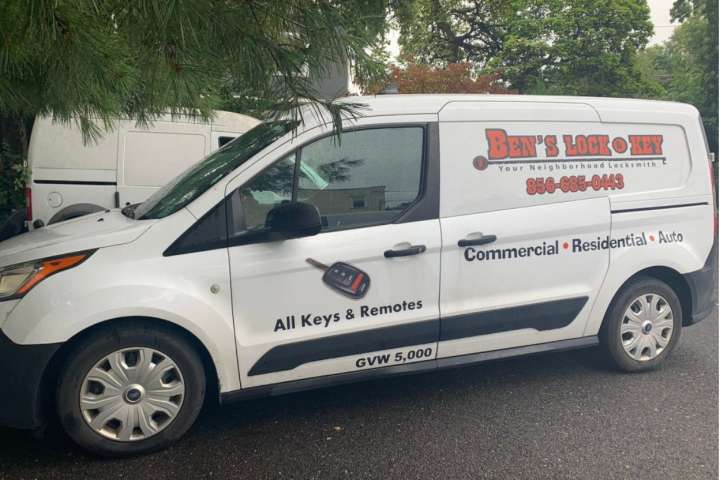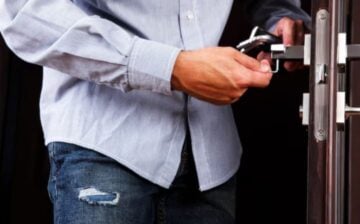Keys have been an essential part of human civilization for centuries, providing security and peace of mind. From the ancient wooden and iron keys used in early societies to the modern, technologically advanced keys we use today, these tools have evolved significantly. However, not all keys are created equal, and understanding the different types can help you choose the right one for your needs. In this article, we will explore the various types of keys and their uses, helping you navigate the world of locks and keys with confidence.
Traditional keys, such as the familiar pin tumbler keys, are the most common and widely recognized. They are used in everyday locks for homes, offices, and vehicles. These keys are designed with a series of grooves and ridges that match the pins inside the lock, allowing it to turn and unlock the door. Another type is the tubular key, often used in vending machines and bike locks, featuring a cylindrical shaft with a series of notches around its edge.
High-security keys, such as dimple keys and sidebar keys, offer an added layer of protection. Dimple keys have indentations on the flat side of the key, aligning with corresponding pins within the lock. Sidebar keys incorporate a sidebar mechanism that adds complexity to the locking system, making it harder to pick or duplicate the key.
In addition to traditional mechanical keys, modern technology has introduced electronic keys, smart keys, and car and truck remotes. Electronic keys, commonly used in cars, contain a transponder chip that communicates with the vehicle’s ignition system. Without the correct chip, the car will not start, adding a layer of security against theft. Smart keys take this a step further, using wireless technology to unlock and start vehicles—often without even removing the key from your pocket. Car and truck remotes provide added convenience, allowing drivers to lock, unlock, and sometimes even start their vehicles from a distance.
Skeleton keys, often associated with old houses and antique furniture, are designed to open many different locks. While they provide convenience, their universal nature means they offer little security. These keys are now more of a curiosity or decorative item than a practical security tool.
Choosing the right key involves considering the level of security you need and the type of lock you are using. For high-security needs, such as in commercial buildings or expensive vehicles, investing in high-security or electronic keys is a wise decision. For everyday use, traditional pin tumbler keys are usually sufficient.
This article is provided by a professional expert in locksmith services ben’s lock and key.
1. Traditional Keys
Traditional keys are the most common type, used for residential and commercial locks. These keys typically have a unique pattern of cuts along their blade that matches the pins inside a standard pin-tumbler lock.
Uses:
- Home and office doors
- Padlocks
- Cabinets and lockers
Advantages:
- Widely available and easy to duplicate
- Compatible with a variety of locks
Disadvantages:
- Can be picked or bumped by experienced intruders
- Limited in terms of advanced security features
2. Skeleton Keys
Skeleton keys, also known as passkeys, are designed to open multiple locks of the same type. They have a simple, elongated shape and are typically used for warded locks, which are less common today.
Uses:
- Antique furniture and locks
- Certain types of old padlocks
Advantages:
- Can open multiple locks with a single key
- Useful for antique restorations
Disadvantages:
- Limited to specific types of old locks
- Not suitable for modern security needs
3. Double-Sided Keys
Double-sided keys have cuts on both sides of the blade, providing a higher level of security compared to single-sided keys. These keys are often used in cars, high-security locks, and some residential locks.
Uses:
- Automotive locks
- High-security residential and commercial locks
Advantages:
- More difficult to pick or bump than single-sided keys
- Provides enhanced security
Disadvantages:
- More expensive to replace or duplicate
- Requires compatible double-sided locks
4. Tubular Keys
Tubular keys, also known as barrel keys, have a cylindrical shape with a hollow center and a series of cuts around the edge. These keys are commonly used for vending machines, bike locks, and certain high-security locks.
Uses:
- Vending machines
- Bicycle locks
- High-security locks
Advantages:
- Difficult to duplicate or pick
- Provides a high level of security
Disadvantages:
- More expensive and less widely available
- Requires specialized locksmith services for duplication
5. Transponder Keys
Transponder keys, also known as chip keys, contain a microchip that communicates with the car’s ignition system. These keys are commonly used in modern vehicles to prevent theft.
Uses:
- Automotive locks (modern vehicles)
Advantages:
- High level of security against car theft
- Difficult to duplicate without specialized equipment
Disadvantages:
- Expensive to replace or duplicate
- Requires programming by a professional locksmith or dealership
6. Smart Keys
Smart keys, also known as proximity keys, use radio frequency identification (RFID) technology to communicate with the lock. These keys allow for keyless entry and ignition in modern vehicles and smart home systems.
Uses:
- Modern automotive locks
- Smart home locks
Advantages:
- Convenient keyless entry and ignition
- High level of security
Disadvantages:
- Expensive to replace
- Requires compatible smart lock systems
7. Master Keys
Master keys are designed to open multiple locks within a master key system. These keys are typically used in commercial settings where access control is essential.
Uses:
- Commercial buildings
- Apartment complexes
- Hotels
Advantages:
- Simplifies access control for multiple locks
- Enhances security management
Disadvantages:
- Requires a professionally installed master key system
- Potential security risk if the master key is lost or stolen
Choosing the Right Key for Your Needs
Selecting the right key depends on your specific security requirements and the type of locks you use. For residential purposes, traditional keys or double-sided keys may suffice. For higher security needs, such as automotive or commercial applications, transponder keys, smart keys, or master keys offer enhanced protection.
For professional and expert advice on choosing the right keys and locks, trust Ben’s Locksmith Services. Our experienced team can help you navigate the complexities of modern security solutions, ensuring that your property remains safe and secure.
By understanding the different types of keys and their uses, you can make informed decisions about your security needs. Whether you need to upgrade your home locks, secure your business, or enhance your vehicle’s security, choosing the right key is a crucial step in protecting your assets and ensuring peace of mind.
We hope you found this blog post on Understanding The Different Types Of Keys And Their Uses, useful. Be sure to check out our post on Guidelines on Effective Locks With Master Keys for more great tips!
Have Experience in the Moving Industry? Want an Additional Income Stream? Work With All Around Moving!
Partner with us and we’ll help you make money. Click here to learn more.






